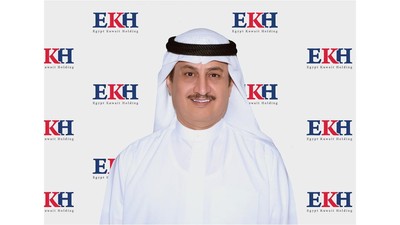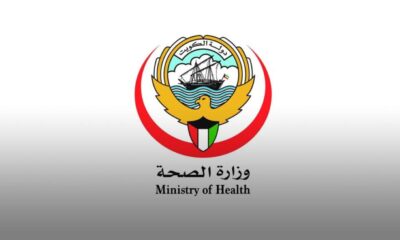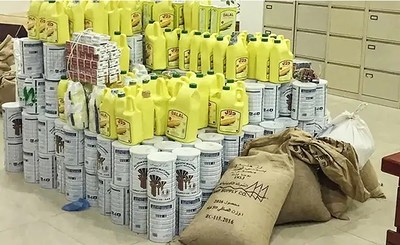KUWAIT / EGYPT, May 18: Kuwait Holding Company (EKHO.CA and EKHOA.CA on the Egyptian Exchange and EKHK.KW on Boursa Kuwait), one of the MENA region’s leading investment companies, reported today its consolidated results for the quarter ended 31 March 2025.
EKH recorded revenues of USD 195million for 1Q 2025, marking a 1% y-o-yincrease and a solid 17% sequential growth, driven by stronggrowth momentum across the portfolio, particularly in the fertilizer and petrochemicalsectors, underpinned by operational efficiency and favourable market dynamics. The Group maintained healthy profitability, with gross profit and EBITDA margins recording 39% and 38% respectively, supportedby efficient cost management and sustained operational strength of core business segments. Meanwhile, net profit recorded USD 39.5 million compared to USD 72.0 million in 1Q 2024, the latter of which was boosted by FX gains amounting to USD 40.2 million. Excluding the impact of FX gains, net profit for the first quarter of 2025grew by a normalised24% y-o-y. Net profit margin came in at 20% during 1Q 2025. Net profit attributable to equity holders amounted to USD 34.1mn in 1Q25, compared to USD 62.6mn in 1Q24 which included 39.0mn in FX gains. Excluding 1Q24 FX gains, attributable net profit grew by a normalised 44% y-o-y in 1Q25.
Commenting on the Group’s performance and business outlook, EKH Chairman Loay Jassim Al-Kharafi:“I am pleased to report that we started off 2025 with continuous momentum, delivering resilient performance amid a fluid macroeconomic backdrop.
This quarter, we successfully advanced our transformation agenda while maintaining healthy contributions across key sectors, including fertilizers, petrochemicals, and utilities. Our revenue base continues to benefit from meaningful USD-linked income, providing natural resilience to currency risk. Diversifying and growing our FX profile remains a core strategic priority, supported by our expanding international footprint and focus on export-oriented sectors.
Strategically, we have made notable progress. We are set to kickstart commercial operations in Saudi Arabia by the end of 2Q25, this marks our first fully owned investment in the Kingdom as well as a key milestone in our regional expansion plans. Our MDF project, Nilewood, is in the final commissioning phase and remains on track to commence operations shortly. Meanwhile, we are nearing closure of our first investment in Northern Europe — a greenfield project representing a strategic entry into a high-growth and hard currency-generating sector.
During the OGM in April, our shareholders approved the Board’s recommendation for the distribution of both cash and stock dividends for FY24, in line with our commitment to delivering value while maintaining flexibility for recycling capital.
As we continue to develop EKH into a more globally oriented investment platform, we remain focused on disciplined execution, responsible investment, as well as sustainable growth and return generation”
Commenting on the Group’s 1Q2025 results, EKH CEO,Jon Rokk: “I am proud to share that EKH’s first quarter results reflect disciplined execution and solid underlying growth throughout key businesses, supported by operational resilience across our portfolio and continued progress on strategic priorities.
Revenue rose 1% y-o-y and 17% q-o-q, supported by strong operational performance. AlexFert delivered double-digit top-line growth across both comparable periods, driven by improved urea export pricing and a more stable gas supply during the quarter. Sprea posted robust EGP-denominated revenue growth, supported by higher sales volumes on the back of the company’s strategy to grow its market share. NatEnergy’s EGP-based revenue recorded solid growth, driven by rising household connections and improved profitability. Kahraba, now reported as a standalone business within our portfolio, continued to post strong growth in electricity distribution volumes. At ONS, we witnessed a temporary reduction in output due to planned maintenance workthat was finalized in February, with operations now reverting to normal run rates.
The divestment of Shield Gas in the UAE marked another milestone in our portfolio optimisation strategy. Meanwhile, the Delta Insurance sale process remains on track, with bidders currently in the due diligence phase.As we continue to recycle capital with the aim of value creation, we remain focused on unlocking higher returns and aligning our portfolio with our long-term strategic priorities.
Our upcoming corporate rebrand will go beyond a mere change in visual identity; rather, it will reflect our shift towards a more agile, global investment company, better positioned to scale proven platforms across borders. We continue to optimise our organisation to render it fit for purpose as well as invest in our people, equipping them with the necessary tools and frameworks to consistently deliver exceptional results.
As we look ahead, we remain focused on executing with discipline, investing for growth, and accelerating our transformation.”
Fertilizers | AlexFert
AlexFertbooked USD 67 million in revenues during 1Q 2025, reflecting asolid 10% y-o-y and 13% q-o-q increase. Revenue growth was supported by upward trending urea export prices as well as higher total volumes brought on by improved gas availability during the quarter. Both gross profit and EBITDA margins expanded by 4pp y-o-yin 1Q 2025, partially driven byfavourable FX translation effects on EGP-denominated costs.Net profit came in at USD 24.6 million, translating into a 3pp y-o-y expansion in net profit margin to reach 37% in 1Q 2025.
The outlook on AlexFert remains optimistic, supported by sustained recovery in urea exportprices, which increased a total of 35% since 2Q 2024 to reach an average of USD410/ton in 1Q 2025.Additionally, local fertilizer quotas are expected to be revised upward by the government, offering upside potential to local quota pricing.
Petrochemicals | Sprea Misr
Sprea Misr reported revenues of EGP2.42billion in 1Q 2025, marking robust increases of 42% y-o-y and 58% q-o-q, driven by higher sales volumes as a result of management’s strategy to grow market share. In USD terms, revenues posted a modest 1% y-o-y growth,due to the impact of the 2024 EGP devaluation, and rose by a strong 55% q-o-q, reflecting sustained improvement in performance.Gross profit improved significantly on a sequential basis, increasing by 16% q-o-q in EGP terms and 14%q-o-q in USD terms, supported by highersales volume. Meanwhile, net profit totalled EGP 494 million in 1Q 2025, implying a net profit margin of20%.
Sprea remains on track to achieve its FY25 net profit guidance, supported by continued recovery in local pricing, which is gradually adjusting in response to the EGP devaluation, rising demand for SNF driven by the resumption of construction activity in Egypt, and further top-line growth from highersales of liquid glue anticipated with the start of operations at Nilewood.
Utilities | NatEnergy
NatEnergy reported revenues of EGP 882million in 1Q 2025, marking a 40% y-o-y increase, primarily driven byincreased connections to residentialcustomers. In USD terms, revenues stood at USD 17.5 million, reflecting the impact of the EGP devaluation. On a sequential basis,gross profit and EBITDA margins expanded by 3pp q-o-q and 2pp q-o-q, respectively, to land at 26% and 25%, respectively, reflecting improved profitability driven by a more favourable revenue mix, as management continues to prioritise margin-accretive residential and industrialcustomers. Net profit came in at EGP249million in 1Q 2025, compared to EGP 583million recorded in 1Q 2024, with a net profit margin of 28% for 1Q 2025. Excluding the impact of FX gains booked in 1Q 2024, earnings would have grown by a normalised 18% y-o-y.
NatEnergy’s outlook remains promising,supported by the anticipated adjustments of natural gas connection prices, which will help ease current margin pressures.Management continues to optimise revenue mix by expanding its customer base in high-potential residential areas, further enhancing blended margins as well as overall profitability.
Utilities | Kahraba
Kahraba’srevenues rose 37% y-o-y to EGP 679 million, driven by continued growth ofits electricity distribution business, withdistribution volumes surging 43% y-o-y, reflecting robust performance delivered by the 10th of Ramadan concession zone. In USD terms, revenuesstood at USD 13.4 million due to the impact of the EGP devaluation. Net profit recorded EGP 65.2 million in EGP terms and USD 1.29 million in USD terms, reflecting the impact of higher inputcosts as well as one-off gains recorded in 1Q 2024.
Kahraba is currentlyinvesting in a second substation within its10th of Ramadan concession area to meet rising demand, as industrial activity in the zonecontinues to accelerate. Additionally, the recent government decision to unify natural gas tariffs for all electricity generators will enhance the competitiveness of Kahraba’s generation business.
Oil and gas | ONS
ONS reported revenues of USD14million in 1Q 2025, impacted by the temporary planned shutdown for pipeline repairs as well as the turbine exchange that was finalised during February 2025.Net profit amounted to USD6.5million in 1Q2025, translating into a net profit margin of 45%, in line with the broader trend observed across gross profitability and operating margins, which was a result of the temporary pause in production due to planned maintenance works.
ONS is set to deliver growth in 2025, supported by key operational milestones including thecommercial production at its two newly drilled wells, KSE2 and Aton-1.These developments are expected to sustain gas ouput at a steady rate of 55 MMSCFD through the end of 2026, translating into higher volume sales. ONS also continues to benefit from the 10-year extension to its Concession Agreement, approved by the Egyptian General Petroleum Corporation(EGPC) in Q3 2024, reinforcing operational continuity and long-term growth prospects.
NBFS& Diversified
The Diversified segment delivered strong growth in EGP terms, with revenues increasing 30% y-o-y and 46% q-o-q. In USD terms,revenues posted significant improvement sequentially, rising 44% q-o-q. Gross profitability improved notably, with gross profit margin expanding by 4 pp y-o-yto 57%, supported by the reassessment of insured asset values and premiums along withstrong portfolio returns driven by the high-interest rate environment. Delta Insurance reported an attributable net profit of EGP 105 million compared to EGP 121 million in 1Q 2024. Excluding the impact of EGP 19.1 million booked in FX gains in 1Q 2024, earnings would have grown by a normalised c3% y-o-y.Mohandes Insurance posted a 71% y-o-y increase in attributable net profit andBedayti recorded a 5% y-o-y growth in attributable net profit, reaching EGP 15.7 million.
Looking ahead, management remains confident in the insurance sector’s momentum, supported by consistent premium growth and ongoing increases in the valuation of insured assets. Additionally, Nilewood remains on track to begin commercial operations, with the plant currently in its final commissioning phase.

 Latest News20 hours ago
Latest News20 hours ago
 Latest News19 hours ago
Latest News19 hours ago
 Business12 hours ago
Business12 hours ago
 Politics23 hours ago
Politics23 hours ago
 Latest News21 hours ago
Latest News21 hours ago
 Latest News23 hours ago
Latest News23 hours ago
 Latest News22 hours ago
Latest News22 hours ago
 Latest News18 hours ago
Latest News18 hours ago




















